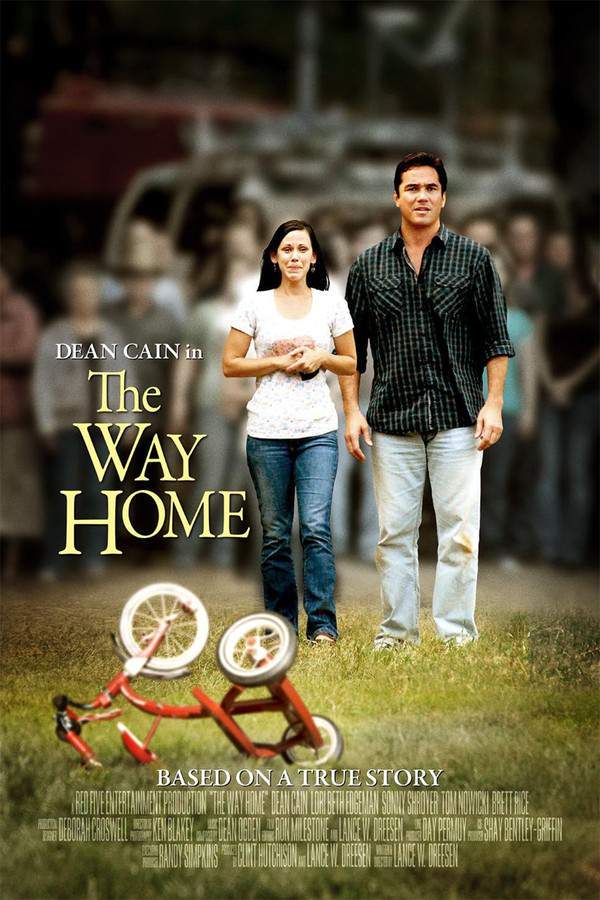
The Way Home 2002
Directed by

Jeong-hyang Lee
Made by

Paramount Classics
Test your knowledge of The Way Home with our quiz!
The Way Home Plot Summary
Read the complete plot summary and ending explained for The Way Home (2002). From turning points to emotional moments, uncover what really happened and why it matters.
The narrative unfolds on a bright summer morning, as Sang-woo (Seung-ho Yu) and his mother embark on a bus journey to the countryside. From the outset, it’s apparent that the unsophisticated demeanor of the rural passengers annoys the seven-year-old city boy. His mother is taking him to stay with his 78-year-old grandmother, Grandmother (Eul-boon Kim), who, despite being mute, is not deaf. This visit occurs while she seeks new employment after being abandoned by her husband and her failed business venture in Seoul. Their arrival is marked by a desolate bus stop in a quaint Korean village.
As Sang-woo arrives with junk food and toys, he shows no inclination to respect his mute grandmother, especially when discovering her home lacks basic amenities like electricity and running water. His mother apologizes for leaving him, assuring her own mother that the separation will be short-lived before she departs on the next bus. Left alone, Sang-woo dismisses his grandmother, refusing to even acknowledge her presence and derogatorily calling her a byungshin or “retard.”
The following morning, the grandmother begins her daily routine by fetching clean water and washing clothes in the river while caring for her melons to sell at the farmer’s market. Among her neighbors is a diligent country boy who makes attempts to befriend Sang-woo, who ultimately declines until a later reconciliation occurs. Additionally, there’s a young girl who captures Sang-woo’s affections, yet he soon discovers she is more intrigued by the country boy.
Living a humble and simple life, the grandmother shows deep care for her elderly friends. After some time spent playing, Sang-woo’s Game Boy runs out of batteries. In an act of selfishness, he seeks money for new batteries from his grandmother, only to find she has none. In his intolerance, he teases her and even resorts to throwing away her shoes, breaking her chamber pot, and defacing her home with graffiti.
Frustrated by her lack of funds, Sang-woo resorts to stealing his grandmother’s ornamental hairpin to trade for batteries. After a misguided attempt to barter at a shop, he finds himself receiving a painful smack on the head from a shop keeper—who turns out to be an acquaintance of his grandmother—and is sent home empty-handed.
One day, hungry for Kentucky Fried Chicken, Sang-woo expresses his wish in vague terms. Misunderstanding, the grandmother interprets his request as merely wanting “chicken.” Determined, she goes to market under the pouring rain to buy a live chicken, only to return with a homemade boiled chicken instead of the desired fried one. Furious, Sang-woo tosses the meal aside but later succumbs to hunger and finishes it late that night. The next day, when his grandmother falls ill, he tenderly serves her the remaining chicken while taking care of her.
Despite the challenges faced by his grandmother, who suffers from osteoporosis, her reliance on Sang-woo is mostly limited to needing help threading sewing needles. She works diligently, stitching shoes and sharing her meager earnings with a friend who expresses a desire to see her again before it’s too late. Throughout this time, Sang-woo wrestles with feelings of anger and confusion in this unfamiliar setting, continually rebuffing her loving gestures.
However, the grandmother’s unconditional love begins to break down Sang-woo’s defenses. One fateful day, he wakes early and accompanies her to the market, witnessing the relentless effort she puts into selling her vegetables. After a long day, she lovingly purchases noodles and shoes he had longed for. As they prepare to board the bus back home, Sang-woo modestly asks for a Choco Pie.
Visiting a shop owned by a dear friend of the grandmother who suffers from a bad knee, she is gifted several pies in exchange for a melon. Yet, upon her return to the bus, Sang-woo, eager to impress the girl he likes who is also aboard, decides he wants to ride alone. When she tries to insist he take the remaining produce, he stubbornly declines, and the bus departs. Alone, he waits impatiently for his grandmother to return, realizing only then that she had walked back carrying all of her wares.
Over time, Sang-woo gradually grows to love his grandmother. Acknowledging her illiteracy, he creates simple greeting cards to ensure she has something from him. Eventually, when his mother returns, Sang-woo prepares to go back to Seoul. His emotions pour out as the bus pulls away—he rushes to the back window, waving a tearful goodbye. The film concludes with the grandmother continuing her quiet life in their thatched-roof home, now enriched by the heartfelt letters from her grandson.
The Way Home Timeline
Follow the complete movie timeline of The Way Home (2002) with every major event in chronological order. Great for understanding complex plots and story progression.
Bus Journey to the Countryside
On a bright summer morning, Sang-woo and his mother set off on a bus journey to visit his grandmother. This marks the beginning of Sang-woo's challenging transition from city life to the unfamiliar rural environment.
Arrival at Grandmother's Home
They arrive at a desolate bus stop in a quaint Korean village, where Sang-woo's grandmother lives. The initial atmosphere is uncomfortable as Sang-woo holds a dismissive attitude towards the local villagers.
Initial Dismissal of Grandmother
Upon arriving at his grandmother's home, Sang-woo quickly dismisses her, showing disrespect due to her being mute. He is less than thrilled to find no electricity or running water in her home.
Mother's Departure
Sang-woo's mother reassures her own mother that the separation will be short-lived before she boards the next bus, leaving Sang-woo alone with his grandmother. This decision sets the stage for an emotional journey.
Grandmother's Daily Routine
The next morning, Sang-woo witnesses his grandmother's daily routine, which includes fetching clean water and washing clothes. Despite her efforts, he remains indifferent and rude towards her.
Meeting Neighbors
Sang-woo meets a diligent country boy and a girl he finds attractive who shows interest in the boy. Initially, Sang-woo refuses to befriend them, preferring to isolate himself.
Selfish Demands
Frustrated that his Game Boy runs out of batteries, Sang-woo demands money from his grandmother, only to find she cannot provide it. In a fit of rage, he begins to torment her.
Stealing for Batteries
In desperation, Sang-woo steals his grandmother's ornamental hairpin to trade for batteries. His cunning plan backfires when he faces a painful reprimand from a shopkeeper who knows his grandmother.
Misunderstanding Dinner
Sang-woo craves Kentucky Fried Chicken but his grandmother misunderstands and brings home a boiled chicken instead. Feeling anger and disappointment, he initially rejects the meal.
Tender Moment
Later that night, hunger overwhelms Sang-woo, and he eats the boiled chicken. When his grandmother falls ill the next day, he shows tenderness by serving her the remaining food.
Growing Affection
Sang-woo begins to notice the hard work his grandmother puts into earning a living and sacrifices for him. He experiences a growing sense of love and understanding towards her.
The Market Visit
Accompanying his grandmother to the market, Sang-woo witnesses her relentless efforts and dedication. This experience profoundly impacts his feelings about their relationship.
Parting Gift
Before their departure, Sang-woo modestly asks for a Choco Pie. His grandmother, in a gesture of love, trades for several pies, showcasing the bond that is gradually being formed.
Realization of Loss
After Sang-woo selfishly declines to take his grandmother's remaining produce before boarding the bus, he is left alone and realizes she has walked back to carry all her goods. This moment shifts his perspective.
Emotional Goodbye
As Sang-woo prepares to return to Seoul, he expresses his emotions as the bus pulls away, waving a tearful goodbye to his grandmother. This poignant farewell signifies a deep transformation in their relationship.
The Way Home Characters
Explore all characters from The Way Home (2002). Get detailed profiles with their roles, arcs, and key relationships explained.
Sang-woo (Seung-ho Yu)
Sang-woo is a seven-year-old city boy initially portrayed as spoiled and rude towards his grandmother. His contempt for her rural lifestyle highlights his immaturity. However, through various experiences during his stay, he evolves, ultimately recognizing and valuing her love and sacrifices.
Grandmother (Eul-boon Kim)
The grandmother is a resilient 78-year-old woman who, despite her inability to speak, exhibits deep love and care for her grandson. Struggling with her own hardships yet remaining nurturing, she embodies selflessness and strength, ultimately becoming a pivotal figure in Sang-woo's emotional growth.
The Way Home Settings
Learn where and when The Way Home (2002) takes place. Explore the film’s settings, era, and how they shape the narrative.
Time period
The story unfolds in contemporary South Korea, reflecting modern societal challenges and familial dynamics. It highlights the relationship between a city boy and his rural grandmother during a summer visit, capturing timeless themes of growth and understanding across generations.
Location
Quaint Korean village, Countryside
The film is set in a quaint Korean village, characterized by its simplicity and natural beauty. The rural landscape is marked by modest homes, farming fields, and a close-knit community. This serene environment starkly contrasts with the urban life Sang-woo is accustomed to, emphasizing the cultural and generational divide.
The Way Home Themes
Discover the main themes in The Way Home (2002). Analyze the deeper meanings, emotional layers, and social commentary behind the film.
❤️
Family
Family bonds and unconditional love are central themes in the movie. As Sang-woo navigates his resentment towards his grandmother, he gradually learns to appreciate her sacrifices and kindness. The film poignantly illustrates how familial relationships can evolve through understanding and shared experiences.
💔
Isolation
The theme of isolation is evident in both Sang-woo's initial rejection of his grandmother and her own loneliness due to her old age and mute condition. This isolation is challenged as they slowly begin to connect, prompting reflections on empathy and human connection despite differences.
🌱
Growth
Personal growth is a prominent theme as Sang-woo transitions from indifference to affection for his grandmother. His experiences in the village teach him important lessons about compassion, responsibility, and the value of relationships, marking a significant change in his character by the end of the film.

Coming soon on iOS and Android
The Plot Explained Mobile App
From blockbusters to hidden gems — dive into movie stories anytime, anywhere. Save your favorites, discover plots faster, and never miss a twist again.
Sign up to be the first to know when we launch. Your email stays private — always.
The Way Home Spoiler-Free Summary
Discover the spoiler-free summary of The Way Home (2002). Get a concise overview without any spoilers.
In a sun‑drenched Korean countryside, the rhythms of daily life unfold around modest thatched roofs, market stalls, and a river that provides the village’s lifeblood. The world is intimate and timeless, where neighbors rely on one another and the land itself shapes each habit. Within this gentle landscape, a family’s quiet desperation sets the stage: a mother hurriedly boards a bus, leaving her young son behind to find shelter with his aging, mute grandmother while she seeks work in the city.
Sang-woo arrives in the village clutching the comforts of modern life—snacks, a Game Boy, and an urban attitude that clashes with his new surroundings. He is thrust into the care of Grandmother, a stoic seventy‑eight‑year‑old who, despite her silence, conveys a deep well of affection and resilience. Their relationship is the film’s emotional core, poised between frustration and the slow unveiling of an unspoken bond. The surrounding villagers, with their simple generosity and quiet perseverance, form a supportive backdrop that hints at the strength of community ties.
The tone is tender yet unflinching, capturing the subtle humor that arises from cultural dissonance and the bittersweet moments of a child confronting a world far removed from his own. As Sang-woo grapples with unfamiliar customs—washing clothes in the river, bartering at the market, sharing meals under rain‑soaked roofs—he is quietly drawn into the rhythm of village life. The story promises a gentle exploration of growth, empathy, and the ways love can bridge even the widest generational gaps, all set against the soft, amber light of a rural summer.
Can’t find your movie? Request a summary here.
Movies with Similar Twists and Themes
Uncover films that echo the narrative beats, emotional arcs, or dramatic twists of the one you're exploring. These recommendations are handpicked based on story depth, thematic resonance, and spoiler-worthy moments — perfect for fans who crave more of the same intrigue.
Featured on this page

What's After the Movie?
Not sure whether to stay after the credits? Find out!
Explore Our Movie Platform
New Movie Releases (2026)
Famous Movie Actors
Top Film Production Studios
Movie Plot Summaries & Endings
Major Movie Awards & Winners
Best Concert Films & Music Documentaries
Movie Collections and Curated Lists
© 2026 What's After the Movie. All rights reserved.








